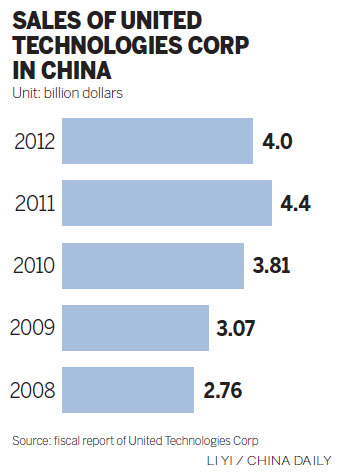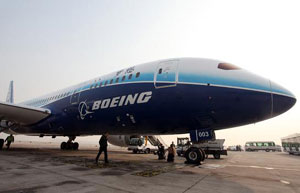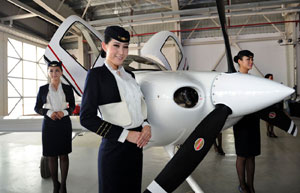Chinese expat flies high in aviation sector
By Wang Wen (China Daily) Updated: 2014-02-20 07:38During the past 10 years, China experienced rapid economic development, with gross domestic product growing from 15.99 trillion yuan ($2.64 trillion) in 2004 to 56.89 trillion yuan in 2013.
United Technologies generated $4 billion sales in China in 2012, accounting for almost 10 percent of the group's global net sales during the year.

The fast development of China's economy gave the Chinese expatriate senior managers more opportunities in international companies.
Xie is not the only Chinese foreigner to take charge of a global top 500 company business in China.
Eric Chen became the first Chinese president of Airbus China in early 2013 and Zhang Jianwei was named as Bombardier China's president as early as 2005.
These Chinese expatriate executives have advantages in their work as regional heads of international companies in China, human resource experts said.
"They understand both Chinese culture and Western thinking at the same time," said Amy Yang, a senior consultant from Antal International, a UK-based human resources consulting firm.
Most of these Chinese expatriate executives received their college education in China and lived for a long time overseas.
Bilingual skills, education background and international experience all give the Chinese foreign senior managers competitive advantages working in China, she said.
Xie, who left China in the early 1990s, said he helps United Technologies - the US company - communicate with its Chinese clients.
"Senior managers such as me are bridges connecting China and the West, because we know both the Chinese clients' minds and Western companies' culture," he said.
However, the long-term overseas residents' lives may also be an obstacle for Chinese foreign executives, who may be unfamiliar with the changes in China in recent years, said Yang.
|
 |
 |
- NHTSA says finds no 'defect trend' in Tesla Model S sedans
- WTO rare earth ruling is unfair
- Amway says 2014 China sales may grow 8%
- President Xi in Europe: Forging deals, boosting business
- CNOOC releases 2013 sustainability report
- Local production by Chery Jaguar Land Rover this year
- Car lovers test their need for speed in BMW Mission 3
- China stocks close mixed Monday

















